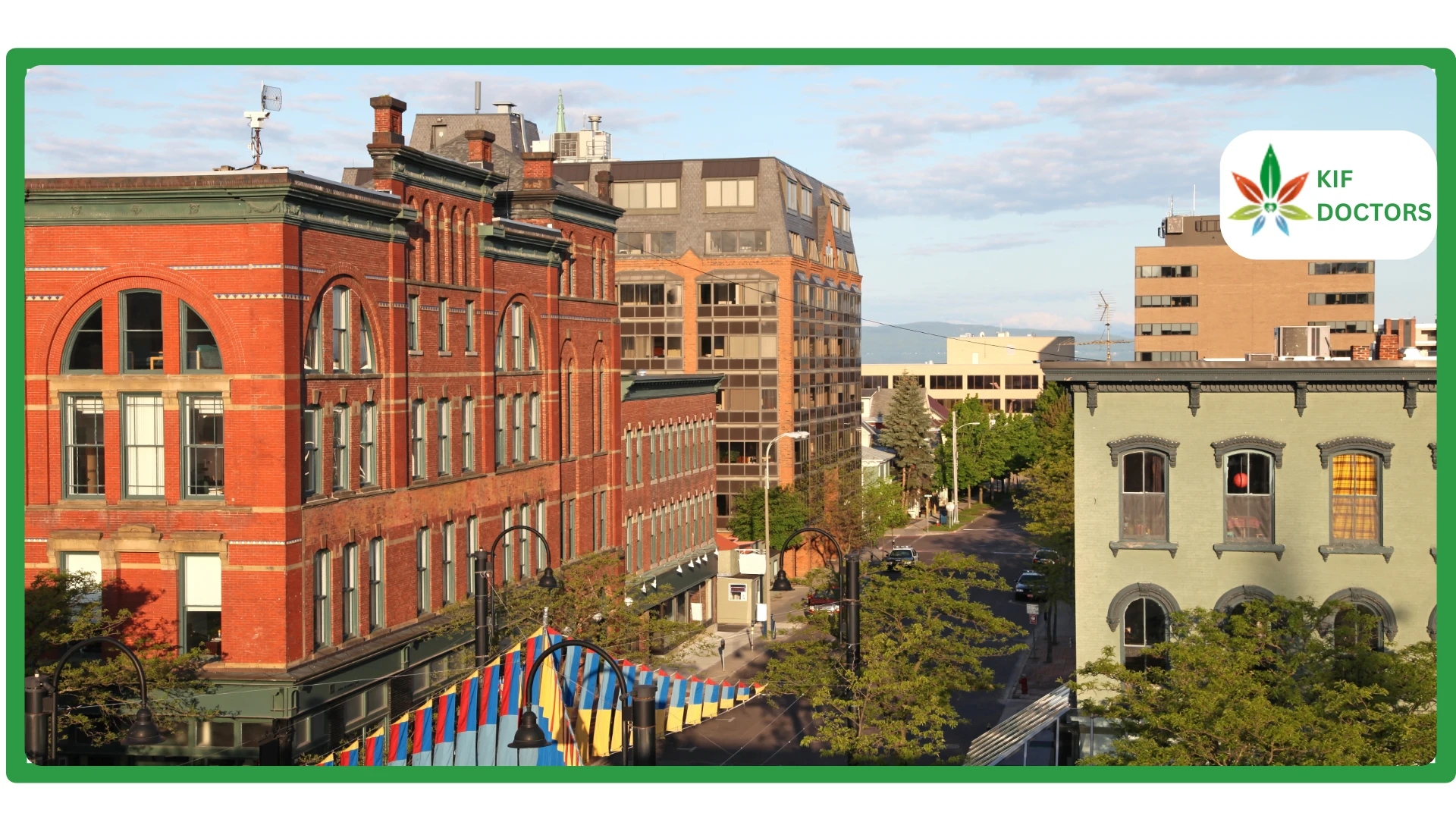Men who have low testosterone from aging, hypogonadism, or other health problems are now using Testosterone Replacement Therapy (TRT) more frequently.
Taking TRT can make you feel more energetic, cheerful, and help build muscle. However, younger men are especially worried about how TRT impacts fertility, because this is a significant concern. Simply put, does TRT reduce sperm levels in men?
Don’t Wait, Reclaim Your Vitality – Click here to Book Your TRT Consultation Now!
In this guide, you will see how testosterone replacement therapy affects a man’s fertility. It tells how getting testosterone therapy changes sperm production, if changes stay over time, what other options are available, and how to restore or safe fertility.
Role of Testosterone in Spermatogenesis
Although testosterone plays a part in the process of sperm creation, what it does inside the body is more sophisticated than most people can usually imagine. Even though testosterone supports various systems in the body by traveling in the blood, sperm is made within the testes due to the high testosterone concentration there.
Key Points:
- Leydig cells inside the testes create testosterone.
- A high level of testosterone inside the testes is needed to help Sertoli cells, which shape sperm development.
- The brain releases LH (luteinizing hormone) and FSH (follicle-stimulating hormone), which instruct the testes to produce testosterone and sperm.
How Does TRT Affect Sperm Count?
TRT changes how hormones work in the body. These changes can hurt fertility in a few key ways:
1. Suppressed Gonadotropins (LH & FSH)
When testosterone from outside enters the bloodstream, the brain senses high levels and reduces LH and FSH production. Without these hormones, the testes stop receiving signals to make sperm.
2. Lower Intratesticular Testosterone
Even though blood testosterone is high, the testes get less LH, so internal testosterone falls. Since sperm need high testicular levels, sperm production drops sharply.
3. Azoospermia (No Sperm Production)
Many men on TRT find that sperm production stops completely—this is called azoospermia. It usually appears within 3–6 months if no protective therapy (like hCG) is used.
4. Smaller Testicles
Reduced hormone signals cause the testes to shrink. This drop in volume reflects lower internal testosterone and sperm output.
5. Worse Semen Quality and Less Volume
Even if some sperm remain, semen may thin and carry fewer sperm. Sperm movement and shapes may also worsen, making it harder to conceive.
Is TRT‑Induced Infertility Permanent?
A top question: Does TRT permanently harm fertility or is recovery possible?
1. Recovery Timeline After Stopping TRT
After stopping TRT, the body often begins to make hormones naturally again around 3 months later. Full recovery might take up to a year, and sometimes longer—up to 18 months in rare cases.
2. Treatment Duration Matters
The longer you’re on TRT, the slower and less full your recovery may be. Those on TRT for less than 6 months tend to bounce back better than those on it for over a year.
3. Pre‑TRT Fertility Levels
If sperm count or reproductive hormones were low before TRT, there’s less chance of the same fertility returning later.
4. Age Affects Recovery
Younger men—usually under 40—recover faster. Older men might take longer or not regain full fertility.
5. Help Speeds Up Recovery
Stopping TRT alone might not work. Many men need additional medication like hCG or clomiphene to resignal tthe estes to produce sperm
Can You Preserve Fertility While on TRT?
For men who want kids later, there are ways to protect or maintain fertility.
1. Sperm Banking Before TRT
Freezing sperm (cryopreservation) before starting TRT is one of the most reliable options. A few samples mean options later if sperm drops during treatment.
2. Use of hCG with TRT
hCG mimics LH and helps keep testicle function while on TRT. Adding hCG helps maintain internal testosterone and sperm production.
3. Clomiphene Citrate as a Fertility‑Friendly Alternative
Clomiphene prevents estrogen from feeding back into the brain. This increases LH and FSH, raising testosterone naturally without killing sperm production.
4. Low‑Dose TRT Protocols
Some doctors use low TRT doses along with hCG. This mix supports testosterone levels while still letting sperm be made.
5. Hormone Testing & Counseling First
Before starting TRT, it’s smart to get hormone tests and a semen check. This helps you know your baseline and talk about how TRT might affect fertility.
Who Is Most at Risk of Fertility Loss from TRT?
Some men face greater fertility risks on TRT than others.
1. Young Men Who Want Kids
Guys under 40 without children face more stress if fertility drops because of TRT.
2. Those with Mild Hypogonadism
Men with testosterone just below normal might prefer fertility‑safe alternatives instead of jumping into TRT.
3. Long‑Time Steroid Users
Users of anabolic steroids often have more severe suppression. They might struggle longer to recover, even after stopping.
4. Men with Existing Fertility Issues
If you already have low sperm, varicocele, or similar issues, adding TRT could make it harder to recover.
5. Buying Testosterone Illegally or Online
Unsanctioned products often have wrong doses or chemicals, increasing the risk of full hormone shutdown and making recovery tougher.
Monitoring Fertility During TRT: What You Need to Know
If you're already on TRT and want to track fertility, here’s what helps:
1. Baseline Semen Check
A pre‑TRT semen test gives a baseline to compare how things change later .
2. Semen Re‑Tests Every 3–6 Months
Checking sperm levels regularly can catch drops early. Then you can adjust dosing or add support like hCG .
3. Blood Hormone Tests
Periodic checks for LH, FSH, total/free testosterone, and estradiol help monitor hormonal balance and fertility.
4. Examine Testicle Size & Health
Palpation or ultrasound checks for shrinking testes, which signals reduced sperm/t levels .
5. Talk to a Reproductive Urologist
These specialists understand TRT and fertility. They tailor your plan to both hormone needs and future family goals .
Alternatives to TRT for Men Who Want to Preserve Fertility
These options boost testosterone without stopping sperm production:
Clomiphene Citrate (Clomid)
- Blocks estrogen receptors in the brain, increasing LH & FSH.
- Raises your natural testosterone.
- Keeps or improves sperm levels.
hCG Therapy
- Acts like LH to stimulate internal testosterone and sperm.
- Used alone or along with TRT.
SERMs and Aromatase Inhibitors
- They stop estrogen from blocking testosterone creation.
- They raise internal testosterone.
- Helpful when estrogen is too high .
Lifestyle Adjustments and Natural Boosters
- Exercise regularly, eat well, sleep enough—these raise testosterone naturally.
- Take vitamin D, zinc, omega‑3s for hormone support.
- Avoid smoking, drinking too much, and stress. Natural methods help fertility and testosterone together.
Conclusion
TRT can greatly improve life for men with low testosterone—but it comes with fertility risks. TRT usually lowers sperm count by turning off the body's own hormone signals. Still, most of this is reversible with smart support and care.
Men who want kids should plan ahead—options like sperm banking, hCG, or clomiphene help maintain fertility. Keep tracking your reproductive health during TRT, and work with experts to balance hormone gain and fertility safety.
At The KIF, your wellness and future goals matter. Whether you're new to TRT or managing fertility while on therapy, we offer tailored solutions via telemedicine and hormone care.
- Free Consultation – \$0: No-cost session to check your hormone health.
- New Patient TRT – \$249: Complete evaluation, prescription, and first month.
- Monthly TRT Subscription: Ongoing care and medications by telehealth.
- Refills – \$149/month: Affordable monthly meds via telemedicine.
Stay in charge of your health and your dreams. Start your TRT journey with us now at The KIF.
FAQs
1. Can I get pregnant while on TRT?
TRT greatly lowers the chance of natural conception. Rare pregnancies happen early on, but it’s unlikely later.
2. How long for sperm count to return after stopping TRT?
Most men start to recover sperm production in 3–6 months. Full recovery can take 12–18 months, depending on age, medications, and how long TRT was used.
3. Can I use TRT and still have kids later?
Yes—with planning. You can bank sperm before TRT or use fertility‑supporting options like hCG or clomiphene during treatment.
4. Is fertility loss from TRT permanent?
Usually not. In most cases, sperm production returns if you stop TRT early and add medication to help recovery.
 Since 2021, Kif offers a streamlined platform to get a medical marijuana card online. We have served more than 45K patients across the United States. Sign Up Now to get the right to use medical cannabis for your health condition without any delay.
Since 2021, Kif offers a streamlined platform to get a medical marijuana card online. We have served more than 45K patients across the United States. Sign Up Now to get the right to use medical cannabis for your health condition without any delay.
























